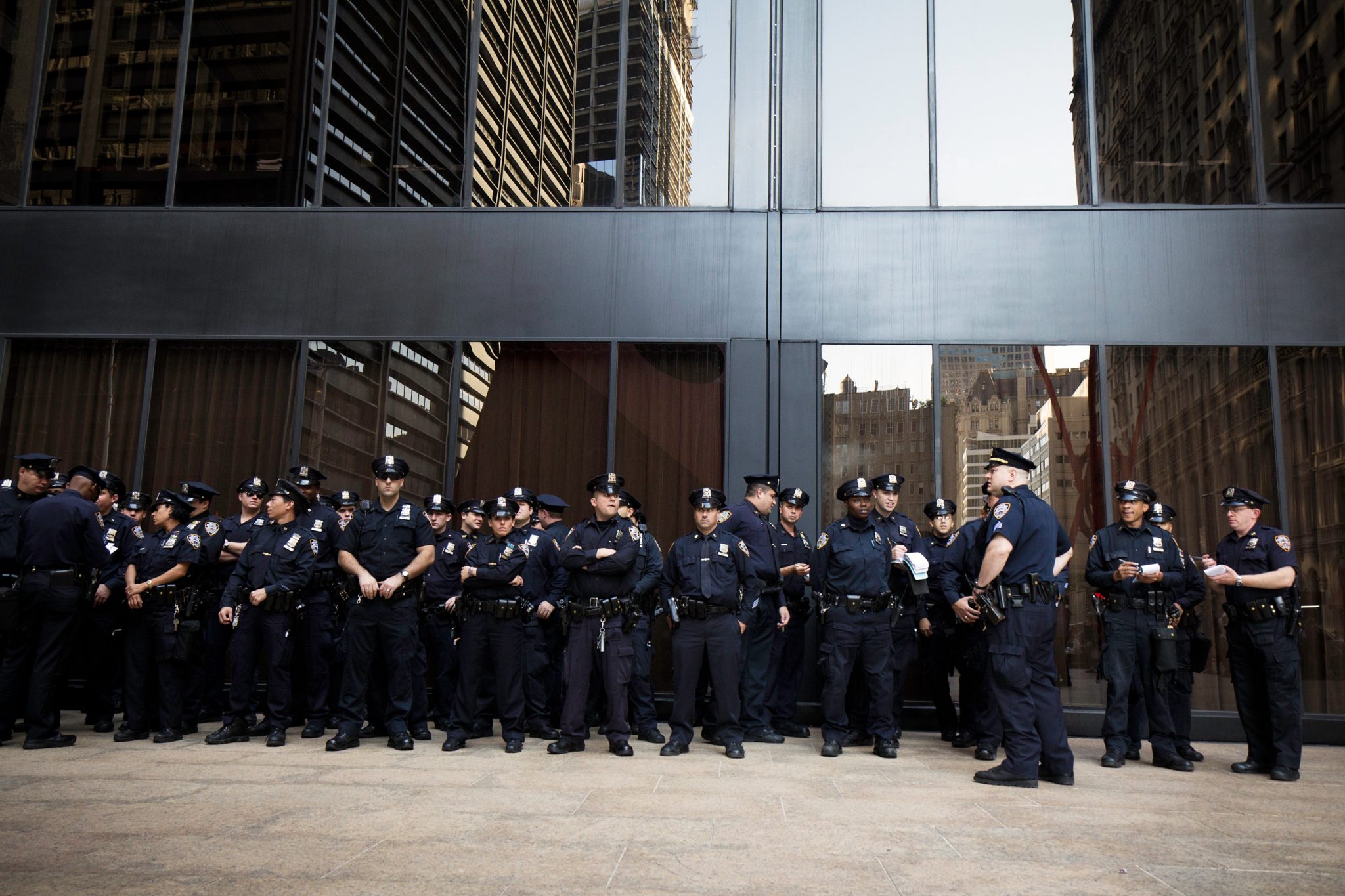
Are Field Sobriety Tests Mandatory in PA?
If you are pulled over with suspicion of driving under the influence, you have substantial rights under Pennsylvania law. With about 1.5 million people arrested in a given year for driving under the influence, police are vigilant about keeping our roads safer and will look for a number of reasons to stop a driver. To protect your rights when pulled over by an officer, here is what you need to know.
Field Sobriety Tests are not Mandatory in PA
Under Pennsylvania’s implied consent law, by operating a vehicle within the Commonwealth of PA, a driver is presumed to consent to a blood, urine or breath test of his or her blood alcohol content (BAC). But you are not required to agree to a field sobriety test – an alternative diagnostic test used to measure a driver’s level of intoxication. You have the right to decline and remain silent until you have a lawyer present and it is vital that you do so to prevent anything you say or do from being used against you in court.
Officers have a number of reasons they use to pull over drivers for suspicion of driving under the influence, driving over the speed limit, staying in a lane, driving recklessly, etc. So if you are pulled over, here are the rights you have in PA:
- To refuse a field sobriety test
- To a trial with legal representation
- To have an attorney to review the state’s evidence
- To call witness
- To testify
- To make the state prove their accusations beyond a reasonable doubt
What is a Field Sobriety Test?
Standard field sobriety tests are developed by the National Highway Traffic Safety Administration designed to help police decide if they should make an arrest. They include:
- Walk-and-Turn Test requiring a driver to take nine steps touching heel to toe walking a straight line before turning on one foot to face the opposite direction in the same manner.
- Horizontal Gaze Nystagmus Test (“Follow My Finger”) where the officer will observe the eyes of a driver as they slowly follow a moving object (such as a pen or flashlight) to see if there is any distinct jerking, angling or irregularity in the eye movement.
- One-Leg Stand Test will instruct the driver to stand with one foot about 6 in. off the ground and begin counting starting aloud from one-thousand until told to stop.
In addition to these standard tests, other tests may include: heel-to-toe test, finger-to-nose test, alphabet recitation, fingers-to-thumb test.
Always keep in mind, that once a driver asks to speak to a lawyer, the officers are obligated to stop asking questions and gathering information from you. So it is crucial that this is the first thing you do when pulled over.
The Downside of Field Sobriety Tests
Field tests are statistically proven to be unreliable, and even many sober individuals are unable to perform the required tasks. Outside elements like the weather or road conditions may also make it more difficult for a driver to pass a test, in addition to their physical condition; for example, if the suspect is overweight, suffers from vertigo, or has arthritis, which in all cases make it difficult to balance in any situation.
Unfortunately, it is also possible that the officer administering the test may not be not objective in recording your results or could simply make errors that would cause you to fail. For example, if the officer is conducting the horizontal gaze nystagmus test while standing with his back to moving traffic. This alone would make it difficult for any driver to fully concentrate on the task.
When considering the consequences of a failed field test, the inaccuracy is too much to risk, so it is critical that you know your rights. Likewise, if you have been arrested and are facing DUI charges, our experienced defense attorneys can bring to light any defenses to your case that will protect these rights and preserve your freedom. Contact us today to discuss your DUI case in a free consultation.
Read More
The Sobering Consequences of DUIs for Underage Drivers
Impaired driving is a serious crime that affects even the most law-abiding citizens who make one bad decision to get behind the wheel. 1 in 3 driving-related deaths involve a driver with a BAC at the legal limit (0.08%) or higher – and what’s even more staggering is that alcohol is involved in 23% of all fatal crashes among 16-20-year-olds, who are under the legal drinking age.
These statistics are a driving force behind why Pennsylvania takes drunk driving very seriously. So if you or someone you know has gotten behind the wheel under the influence and under the drinking age, it’s important to know the consequences that are waiting for you if you get pulled over.
Drunk Driving in Pennsylvania
For all drivers 21 and over, Pennsylvania divides their fines and penalties for a DUI into three categories based on the blood alcohol concentration of the driver at the time of the arrest.
0.08% to 0.099%: General Impairment BAC
0.10% to 0.159%: High BAC
0.16% & over: Highest BAC (or under the influence of a controlled substance)
Whether it is a first, second, or third offense will also play a role in the court’s decision. These consequences can range anywhere from 5 days to 5 years in jail, $300 to $10,000 in fines, 1 to 1 ½ years license suspension, and mandatory drug and alcohol treatment and safety programs. Any driver who refuses to submit to blood alcohol tests are subject to harsher penalties, no matter how many charges they have had in the past.
The Consequences of a DUI for Underage Drivers
For underage drivers, Pennsylvania has a strict DUI conviction for a BAC of as little as 0.02%. Minors who are pulled over or caught driving under the influence risk the following mandatory minimum sentences:
1st Offense
- 48 hours in jail
- A fine of $500
- License suspension of 12 months
- An alcohol safety school & alcohol/drug treatment program determined by the court
2nd Offense
- 30 days in jail
- A fine of $750
- License suspension of 12 months
- An alcohol safety school & alcohol/drug treatment program determined by the court
3rd Offense
- 90 days in jail
- A fine of $1,500
- License suspension of 18 months
- An alcohol safety school & alcohol/drug treatment program determined by the court
There are also collateral consequences to keep in mind too. For high school or college students, a DUI conviction could result in suspension or expulsion, while jeopardizing scholarships and any character-related programs or achievements. And as a public record, you also face the negative stigma that’s associated with a DUI within your community and with employers; while many insurance companies will also choose to raise rates significantly for convicted drivers.
What Happens After an Underage DUI Arrest?
If you’re pulled over by the police for driving under the influence, the best thing you can do is remain calm and respectful to the law enforcement. You should ask to speak with your attorney immediately as anything you say before this request is part of the investigation and can be used against you in court. And this includes any questions asked by the officer about your sobriety. Being cooperative doesn’t require you to answer any alcohol-related questions after being pulled over. However, if you are showing visible signs of intoxication – bloodshot eyes, slurred speech, etc.- you will likely be arrested on the spot.
For select first-time DUI offenders, there is an opportunity to expunge a DUI conviction from your record under Pennsylvania’s Accelerated Rehabilitative Disposition (ARD) program. This program may include counseling, probation, safety classes, and community service. Eligibility will be automatically be denied for defendants whose charge includes the resulting injury or death of other drivers.
Having an Experienced DUI Defense Attorney on Your Side
If you’ve been convicted of an underage DUI charge, our attorneys are skilled at the thorough investigation of drunk driving arrests to help you exploit weaknesses in the prosecution’s case and minimize the lifetime consequences at risk. Contact us today so we can fight for you.
Read More
Should I Get a Lawyer for My First DUI?
If you’ve been arrested for driving under the influence of drugs or alcohol for the first time, it was probably one of the most traumatic experiences of your life. And now, you most likely have a lot of questions. The first one most likely being, “should I get a lawyer?” Even if you boast a perfectly clean driving record going into your arrest, the answer is still YES. Drunk driving crimes are taken very seriously in Pennsylvania, so if you’re a first-time offender, here are some of the main reasons why you need to get a lawyer today.
To Get Answers to Your Questions
Even if you’ve had friends or family who has been convicted of a DUI in the past, every case is different. You’ll have questions that need answers based on your specific circumstances. Without prior experience in the court system, it’s normal to be scared, and an experienced attorney can help ease your concerns by providing you information and guiding you through the process.
As a first-time DUI conviction, you may have more options available to you than in a repeat case, such as a disposition program to avoid a criminal record. It’s important to understand the various scenarios and details of these options, but you’ll be expected to decide quickly. Trying to make these decisions on your own could cost you in the long run.
To Protect Your Rights
By hiring a lawyer right away, they can examine the specific details of your case to determine any possible defenses on your behalf. You have rights under the state and federal law, ensuring that law enforcement handled the initial stop and arrest properly. Your lawyer will be able to catch any of these violations to give you the best possible outcome for your case.
Common defenses involve the following:
- The credibility of the officer who arrested you
- Whether or not the initial traffic stop was constitutional – did they have reasonable suspicion to stop you? Were you read your rights?
- Ensuring the police obtained consent for DUI testing
- The accuracy of the testing equipment used due to lack of maintenance or calibration
- Whether or not the proper testing procedure was followed – observing you for 20 min before testing you, testing within 2 hours of driving the car, etc.
A number of these circumstances could mean for dismissal of the case, so make sure you are working with an attorney who is experienced in DUI crimes.
To Minimize the Consequences You’ll Face
Under state law, the severity of penalties depends on a multitude of factors, including whether it’s a first-time or repeat offense, your blood alcohol concentration level (BAC) at the time of the arrest, and if any injuries or fatalities were a result of the defendant’s condition. While being a first time-offender does help your case, it doesn’t mean you’re off the hook. It does, however, generally give you more options under the law in terms of your penalties. This may involve Pennsylvania’s Accelerated Rehabilitative Disposition (ARD) program which may allow for expungement of the crime from your record upon completion.
Other potential penalties and consequences you may face with a DUI charge include:
- Fines/Fees
Anything over the legal limit could result in fines of $300-$5,000 - Jail Time
A BAC of over 0.10 for a first-time offender allows for up to 6 months in jail - Suspension of Driver’s License
If BAC is over 0.10 or you refused a test, your license could be suspended for a year; that includes losing a Commercial Driver’s License (CDL) or work. - Insurance Rate Increases or Unattainability
A DUI may result in higher limits of insurance and more expensive coverage - Employment Implications
Many employers have policies against employing or hiring anyone with a DUI conviction:
- Increased Penalties in the Future
Due to Pennsylvania’s 3-tiered sentencing guidelines, any second offense you face will be much more severe than the first - Drug & Alcohol Treatment
You may be forced to undergo drug and alcohol education or treatment, as well as community service if a minor was in the vehicle - More Severe Penalties
If there was collateral damage as a result of your DUI, including injuries or fatalities, you’ll be faced with much more serious penalties, as well as possible lawsuits from the victims
If you’ve recently been arrested for a DUI, don’t wait any longer to contact an experienced criminal defense attorney. Whether you’re a first-time or repeat offender, our lawyers will fight to protect your rights and minimize your consequences. Contact us for a free consultation today.
Read More
Collateral Consequences of a DUI
Drunk driving is Pennsylvania’s second leading cause of accidents and fatalities, behind only speeding, with Philadelphia making up a large percentage of these tragedies. For this reason, even a first-degree offense can lead to serious legal repercussions, including substantial fines, mandatory drug, and alcohol counseling, even jail time. While you may be aware of these consequences, you may not realize the long-term collateral damage it also causes. So before you call just any lawyer to defend your DUI case, here are the collateral consequences you could be risking.
Increased Auto Insurance Premiums
In addition to the potential fines, you’ll be responsible for, a DUI conviction can make your auto insurance a real issue. First and foremost, your rates will increase significantly. And switching insurance companies won’t help; your criminal record makes you a high risk no matter where you go which will make companies reluctant to cover you. You could wind up paying premiums of up to hundreds or thousands of dollars more than drivers without a record.
Transportation Challenges
One of the risks you take with drunk driving is losing your license. In some cases, a defendant can petition the court for a restricted license that allows you to still (and only) get to and from work, but in many cases, you won’t be so lucky. Without public transportation, that makes daily commutes a major inconvenience on you and your loved ones. Consider driving your kids to school or sporting events, grocery shopping, going to the bank or post office, or doctors visits when someone gets sick or hurt. Not to mention if traveling is part of your job, you’re looking at far bigger problems.
Lost Employment Opportunities
As an at-will employment state, employers-employees in PA can be terminated by either party for any reason (within discrimination laws). So even if the state simply accuses you of a DUI, your employer can fire you without recourse. What’s worse is they don’t have to rehire you if the charges are dropped or you’re acquitted. A clean driving record is necessary for a multitude of jobs which require good character (medicine, finance, social services, etc.), so your future employment opportunities will be significantly affected as well.
Academic Sanctions
The student code of conduct at many schools and universities prohibit any illegal activity, including drunk driving. As a result, students can face serious repercussions from their academic institution after a conviction. This includes:
- Loss of a scholarship or financial aid package
- Probation
- Suspension
- Expulsion
And if education is in your future plans, you should know that schools may use a criminal record as a factor when deciding on applicants, which could result in the derailment of your academic plans before they even start.
If you’re facing a DUI charge, it’s crucial to understand that a conviction is not necessarily inevitable. With an experienced attorney, you’ll have the very best chance at providing a defense that applies to your case and could help you avoid a criminal record. Contact our lawyers to discuss your case in a free consultation.
Read More
The Most Common Crimes Around the Holidays
 With the joy and excitement of the holiday season also comes feelings of stress and irritability. With both the good or bad, these heightened emotions can cause people to act more rashly or take more risks than normal. While we all wish for a season that’s calm and bright, accidents and conflicts do happen, and November and December, we see an uptick in the number of crimes committed before the New Year. Here are some of the most common crimes around the holidays.
With the joy and excitement of the holiday season also comes feelings of stress and irritability. With both the good or bad, these heightened emotions can cause people to act more rashly or take more risks than normal. While we all wish for a season that’s calm and bright, accidents and conflicts do happen, and November and December, we see an uptick in the number of crimes committed before the New Year. Here are some of the most common crimes around the holidays.
Theft and Burglary
Topping the list of crimes during the holidays is theft. While it may be the season to be grateful for the things we have, it’s also a time to celebrate getting new things. More than ever, we’re making big purchases and spending money on new electronics, appliances and other expensive items. This mentality makes delivery trucks full of packages all too appealing to burglars this time of year, while crowded malls make hurried and distracted shoppers easy targets.
The penalties for shoplifting and other types of burglary depend on the value of the items stolen. Even items less than $150 are a summary offense with up to 90 days in jail and a $300 fine. High-value items of over $2,000 are considered a third-degree felony which can land you 7 years in prison and a $15,000 fine; quite possibly costing you much more than the item you actually stole.
DUI
Far too often people forget about this very common holiday offense, which may be why every year more and more people are hurt, killed or convicted for DUIs. The holidays are a time of celebrating, so from office parties to cookie exchanges, the number of drunk drivers double during this season. A few sips of eggnog or mulled wine at a holiday party is enough reason to hand over the keys, and let someone else drive. In addition to the risk of hurting yourself and someone else, that drink can result in fines, license suspension, probation, and jail time, which is a sure way to ruin the holiday season for you and your family.
Cybercrime
Online shopping continues to increase in popularity each year, and it’s reported that this year’s online holiday sales have already topped $123.73 billion. With so many people trusting their most personal information like credit card numbers, social security numbers, bank accounts and more, we’re more vulnerable than ever. It’s the unfortunate risk we take in exchange for the convenience of getting all of our holiday shopping complete without ever leaving the couch. And as our uses for technology increase, so do the ways in which hackers can make their move, so it’s no surprise credit card and identity theft could be more prevalent than ever this season.
Credit Card/Identity Theft
And while we speaking of identity theft, it’s important to note that technology isn’t the only cause to blame. Even in crowded malls and shopping centers, scammers are looking for any way to get ahead, including stealing personal information as people open their wallets and pocketbooks to purchase gifts or donate to charity. There are a number of ways in which credit card theft can happen, so shoppers should be alert at all times.
A first offense for identity theft in Pennsylvania can result in as many as 5 years in prison or a $10,000 fine, while the amount of money involved in the crime could increase the severity of the punishment even further.
Porch Pirate
The best part about online shopping is having your purchases delivered right to your door. So as online ordering increases, so do unattended packages left on porches all over the neighborhood. These deliveries make it all too easy for a specific type of burglar, known as a porch pirate, to steals recently delivered packages before owners can claim them.
If you find yourself on the wrong end of a crime this season, don’t let the accusations or sentence ruin your holiday. Contact our experienced defense lawyers to make sure you have the representation you need to prevent a wrongful conviction or harsh punishments you don’t deserve.
Read More
Everything You Need to Know About Disorderly Conduct in PA
 thats the crazy pWhile most disorderly conduct charges are considered a summary offense (or the most minor type of criminal offense in Pennsylvania) it doesn’t make facing the penalty any less scary. If you or someone you know has been charged with disorderly conduct in PA, here’s everything you need to know to handle your situation and minimize the resulting consequences.
thats the crazy pWhile most disorderly conduct charges are considered a summary offense (or the most minor type of criminal offense in Pennsylvania) it doesn’t make facing the penalty any less scary. If you or someone you know has been charged with disorderly conduct in PA, here’s everything you need to know to handle your situation and minimize the resulting consequences.
What Does Disorderly Conduct Mean?
Disorderly conduct is a criminal charge that doesn’t pertain to any one action in particular, but instead, a variety of actions that could be described as “unruly.” This means intentionally and/or recklessly causing a risk of public inconvenience, annoyance or alarm. And while Pennsylvania’s disorderly conduct law is not designed to punish just any action that causes irritation or annoyance to others, it is meant to protect the peace and civility of the community by covering a wide range of threatening or tumultuous behaviors.
Some of these behaviors and actions include:
- Violating noise ordinances
- Loitering
- Engaging in fighting or violent conduct
- Disturbing the peace
- Public drunkenness
- Obscene language or gestures
- Creating a physically hazardous condition that serves no licit purpose
Penalties for Disorderly Conduct
As a summary offense, a disorderly conduct sentence may include up to 90 days in jail, as well as a fee of up to $300. In most cases, a guilty individual will simply receive a citation or small fine. However, if the Commonwealth can prove that the defendant had the intent to cause substantial harm or serious inconvenience to the public, then it may be punishable as a misdemeanor of the third degree. These cases typically involve alcohol or public drunkenness, the serious harm or injury to another person or major property damage. As a misdemeanor charge, the individual may be looking at a maximum of 1 year in jail and/or a $2,500 fine.
How to Fight Disorderly Conduct Charge
Since disorderly conduct law is so broad and can be interpreted quite differently, it’s important to take immediate action to develop the right strategy to minimize your sentence. The Commonwealth of Pennsylvania is required to prove every single element of the statute, so a typical strategy is to challenge the evidence which supports how these specific elements individually. For example, describing the “intent” or classifying the “substantial” and “serious” inconvenience. Another approach is disputing the “public” aspect of the crime. Considering the term “public” applies to a place in which a substantial group has access, there may be a chance for acquittal if this cannot specifically be supported.
Other possible defenses may include:
- Lack of intent
- Lack of knowledge that the individual was causing unfavorable conditions
- Self-defense against another’s threatening or violent actions
- Age (minor vs. adult)
- Intoxication
- Provocation for the conduct
Disorderly conduct charges are primarily at the judge’s discretion, which is why additional aspects of the crime, such as being a first-time offense or even the location where the conduct occurred could be crucial to help reduce your charges if presented properly.
If you’re looking for an experienced criminal defense attorney who understands the necessary steps to negotiating an alternative resolution for the reduction or dismissal of your disorderly conduct charge, contact the Bill Brennan Law offices today.
Read More
What Factors Can Reduce My Criminal Charges in PA?
 Anyone who is arrested for a serious crime wants to imagine the best possible outcome if they’re convicted. But few actually know what factors are taken into consideration to determine a criminal sentence. Fortunately, Pennsylvania law requires judges to recognize various facts and situations unrelated to whether or not the defendant is actually guilty of a crime, but that could be grounds for a more lenient punishment.
Anyone who is arrested for a serious crime wants to imagine the best possible outcome if they’re convicted. But few actually know what factors are taken into consideration to determine a criminal sentence. Fortunately, Pennsylvania law requires judges to recognize various facts and situations unrelated to whether or not the defendant is actually guilty of a crime, but that could be grounds for a more lenient punishment.
Mitigating vs. Aggravating Factors
Judges are required to consider two types of factors while determining a convicted person’s criminal charges in PA: mitigating and aggravating. Mitigating factors include any evidence provided regarding the defendant’s character or the circumstances of the specific crime that could support leniency. In opposition, aggravating factors are any relevant circumstances that were presented throughout the trial which would warrant the harshest penalty appropriate.
While some circumstances simply don’t permit consideration, a good criminal defense attorney will present all the relevant facts of the case, no matter how small or minor they may be, as it is ultimately up to the judge to decide which factors will have an impact on the sentence. This may mean that very personal aspects of the defendant’s life will be revealed in court, but any admissible detail could affect the outcome.
What Mitigation Factors Can Help Reduce My Charges?
It’s up to the defendant and their criminal defense lawyer to provide convincing facts if they hope to achieve mitigation. This data is typically viewed in two categories: information about the offense and information about the offender.
Some of these mitigating factors include:
Role in the Crime
If the defendant played a relatively minor role in the crime, such as accepting compensation to transport illegal drugs verses engaging in drug trafficking in Philadelphia, this may be a mitigating factor.
Victim Culpability
Victim culpability refers to the participation or initiation of a crime. Whether someone started a fight in a domestic violence attack or reacted in defense with more force than necessary could impact the sentence.
Unusual Circumstance
A crime was committed while acting out due to emotional distress or substantial provocation is considered an unusual circumstance. This may include a DUI charge for choosing to drink and drive on the same day the defendant lost their job and broke up with their significant other.
Level of Harm
If no one was hurt as a result of the crime, this could also serve as a mitigating factor. An example being a carjacking was committed or property was stolen without harming the victim or anyone else in the process.
Relative Necessity
The motive of a crime may also be worthy of mitigation depending on the situation and relative facts. This would apply to a situation like a defendant stealing food from a grocery or convenience store in order to feel his starving family.
Drug or Alcohol Addiction
If drugs or alcohol were involved, it must have contributed to the crime, not just serve as a motive or excuse. The defendant would likely need to show a concerted effort in rehabilitation before a relapse resulted in the illegal action while under the influence for it to be a considerable factor.
There are a number of other mitigating factors that a judge will analyze during sentencing, which is why it’s so important to have the best criminal defense attorney to advise you on the exact information and circumstances that will reduce your charges and protect your future. Contact our experienced attorneys today to discuss your case through a free consultation.
Read More
The Real Cost of that Drink: Penalties for First & Second DUI Offense
 While some states would regard driving under the influence as a mere traffic violation, leaving the convicted with just a slap on the wrist, in Pennsylvania, you won’t be so lucky. With DUI penalties in PA considered a criminal offense, you’re looking at serious consequences for both first and second time convictions.
While some states would regard driving under the influence as a mere traffic violation, leaving the convicted with just a slap on the wrist, in Pennsylvania, you won’t be so lucky. With DUI penalties in PA considered a criminal offense, you’re looking at serious consequences for both first and second time convictions.
Choosing to drive under the influence not only puts you and others at risk on the road, but it puts you at risk of consequences you’ll suffer for years to come. However, sometimes these laws are overly prosecuted or unfairly charged, and you may not know what to expect in order to protect yourself. So here’s what you need to understand about the actual cost of a drink when it comes to a PA DUI.
General Information on DUI Charges in Pennsylvania
About 15 years ago, the legal limit of alcohol was lowered from .10 to .08 by the Commonwealth of Pennsylvania. From this benchmark, there are three levels of a DUI.
- .08 to .099% BAC = General Impairment
- .10 to .159% BAC = High BAC
- .16% & up = Highest BAC
While these levels certainly impact the severity of a punishment, certain classifications may also play a role in your sentencing. Underage drivers, school vehicles and buses, commercial drivers, drivers who refuse a breathalyzer and drivers who cause injury or property damage to others could face harsher punishments under PA law.
Penalties for First Offense DUI in PA
General Impairment: Up to 6 months of probation and fines of approx. $300
High BAC: 48 hours to 6 months in jail and fines of $500- $5,000; license suspension for 12 months
Highest BAC: 72 hours to 6 months in jail and fines of $1,000- $5,000; license suspension for 12 months
If you’re experiencing a first-time DUI offense, you’re not typically looking at jail time, simply based on your BAC, but there are stipulations. If your BAC is higher than .099, jail time should now be a concern, while being under 21 years of age could mean up to 6 months of jail time, regardless of your BAC level.
Penalties for Second DUI in PA
While some may deem the punishments for a first-time offense as rather extreme, the ultimate goal is to prevent repeat offenders. If you’ve received a 2nd DUI in PA, you’re automatically facing jail time of 5 days to 5 years.
General Impairment: 5 days to 6 months in jail and fines of $300- $2,500; license suspension for 12 months
High BAC: 30 days to 6 months in jail and fines of $750- $5,000; license suspension for 12 months
Highest BAC: 90 days to 5 years in jail and fines of $1,500- $10,000; license suspension for 18 months
All BACs: Up to 150 hours of community service and ignition interlock device installed for 1 year; Enrollment in Alcohol Highway Safety School and an Alcohol and Drug treatment program
Whether you’ve been charged with a first or second offense DUI in Pennsylvania, there’s a lot at stake for your future, and it’s important to make sure you aren’t fighting the battle alone. As Philly’s DUI Lawyer, we’ll help you review all aspects of your case to protect your rights, ensure a fair hearing and help you move forward.
Contact us to set up a free consultation today.
Read More
Did you refuse the breath test in Philadelphia?
Questions: Do I have to take the Breathalyzer test in Pennsylvania?
Answer: You have the right to refuse, but doing so will leave you with a host of legal complications, including loss of driving privileges for one year.
At Brennan Law Offices in Philadelphia, we have over 25 years of experience defending people against charges of drunk driving.
A concept called “Implied consent” comes into play in DUI arrests in Pennsylvania. Implied consent means that if you are driving a vehicle on a Pennsylvania road, it is implied that you automatically consent to take the Breathalyzer test or blood alcohol test in the event you are arrested. If you refuse to take the test, you automatically lose your driver’s license for 12 months.
Refusing to take the Breathalyzer test is a legal issue played out in civil courts, as opposed to criminal courts. A knowledgeable defense lawyer can help you with the criminal defense aspects of a DUI arrest as well as the civil charges you will face for refusal. Our attorneys are equipped to help you fight back against criminal charges and make the strongest case possible for keeping your driver’s license.
Read More
4 Facts About Breath Tests to Know Today
Breath tests are one way that the authorities determine if a driver or pedestrian is under the influence of alcohol. They are simple tests that require only a few deep breaths and for you to blow into the testing instrument.
A breath test isn’t always accurate, but, for the most part, they are and can be used in court. Given this, the results of such tests can play a significant part in DUI cases. Also, refusing to take a breath test could cost a person their driver’s license immediately.
So, there are some things it can be important to understand about breath tests.
4 facts about breath tests you need to know
- A breath test shows the total alcohol in your blood by testing the amount exhaled in your breath. That doesn’t mean that any test you have is going to be accurate. To start with, certain factors, like if you’ve had a drink recently or used mouthwash containing alcohol, could throw off the test. That’s why the officer should take two tests for verification. If the tests aren’t within .02 percent of one another, there could be a problem with the breathalyzer or how the test is being given.
- Another thing to keep in mind is that Breathalyzers have to be calibrated. One that hasn’t gone through calibration is likely not working appropriately and could give a poor reading. When your BAC is close to the legal limit, it is all the more important that the Breathalyzer is working accurately, since it could register too high otherwise and lead to a charge you don’t deserve.
- Breath tests aren’t the only evidence in DUI cases. Officers may collect other evidence, like roadside sobriety test results, to use against you in court as well.
- Breath tests aren’t always entered in court. As evidence, breath tests are risky at best. If they have a variance in readings, a person’s .07 percent BAC could come up as .08 or .09 percent, leading to charges the individual doesn’t deserve. Normally, a breath test is not the only evidence used, but it is used to help confirm an officer’s suspicions. It may in your best interests to try to get the results of the test thrown out when circumstance were present such being pulled over without cause or being given the test incorrectly.
With help, DUI charges can be fought. A breath test doesn’t guarantee a conviction for the authorities.
Read More